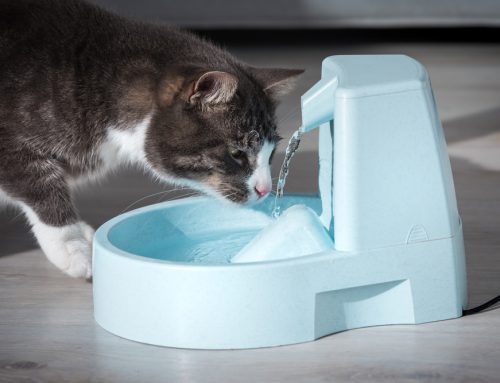Many factors, including advances in veterinary medicine and improved owner compliance, have led to increased longevity for pets. This is excellent news, but living longer also means pets are at higher risk for age-related conditions such as cognitive dysfunction. Our WesVet Animal Hospital team is on a mission to elevate patient care to new heights, and we answer frequently asked questions about this debilitating disease.
What is cognitive dysfunction in pets?
Cognitive dysfunction is similar to Alzheimer’s disease in humans. The brain is at high risk for oxidative damage because the organ consumes about 20% of the body’s total oxygen, and metabolic processes that occur in the brain release compounds, called reactive oxygen species, that can damage brain cells. The damage normally is counteracted by antioxidants produced by the body, but as your pet ages, these protective mechanisms decline.
Is cognitive dysfunction common in pets?
Most experts believe that cognitive dysfunction is underdiagnosed because pet owners often mistake signs of the dysfunction for normal behavioral changes associated with aging. Studies have demonstrated that cognitive dysfunction prevalence is high in:
- Dogs — Prevalence in dogs ranges from 28% in 11- to 12-year-old dogs to 68% in 15- to 16-year-old dogs.
- Cats — Prevalence in cats ranges from 28% in 11- to 14-year-old cats to 50% in cats over 15 years of age.
Cognitive dysfunction prevalence seems to increase exponentially with age but does not appear to be affected by breed.
What are cognitive dysfunction signs in pets?
Signs commonly associated with cognitive dysfunction include:
- Disorientation — Affected pets may seem confused, get lost in familiar places, get stuck in corners, not know how to navigate around objects, or stare into space.
- Impaired memory — Some pets don’t recognize family members or other pets. They may forget known commands or tricks or not be able to follow familiar routes.
- Inability to learn — Learning new tasks may be hard for affected pets.
- House soiling — Affected cats may stop using their litter box, and dogs may forget they are house-trained.
- Sleep cycle disruptions — The pet’s sleep cycle is often disrupted, causing them to sleep more during the day and roam during the night. Some pets also vocalize more at night.
- Behavioral changes — Affected pets may hide more or cling excessively to their primary caregiver. Some pets also become more irritable.
- Anxiety — Cognitive dysfunction often causes increased anxiety in affected pets.
How is cognitive dysfunction diagnosed in pets?
No definitive diagnostic test is available for cognitive dysfunction. Diagnosis typically is made by observing clinical signs in a senior pet. You are in the best position to detect changes in your pet since you know them better than anyone. In addition, diagnostics are necessary to rule out other conditions that can affect your pet’s behavior. Potential tests we may perform include:
- Complete blood count (CBC) — A CBC allows our team to evaluate your pet for issues such as dehydration, anemia, and infection.
- Biochemistry profile — A biochemistry profile allows our team to assess your pet’s electrolyte status and organ function.
- Thyroid panel — Senior pets are at increased risk for thyroid disease, and we may recommend a thyroid panel to ensure this isn’t contributing to their behavioral changes.
- Urinalysis — Evaluating a urine sample provides our team with valuable information about your pet’s health.
How is cognitive dysfunction treated in pets?
Cognitive dysfunction is a progressive disease that can’t be cured, but there are treatments that can slow the disease, including:
- Pain management — Cognitive dysfunction does not cause pain, but senior pets are at high risk for conditions such as osteoarthritis that are painful and can exacerbate cognitive dysfunction signs.
- Exercise — Regular, low-level exercise is beneficial for pets affected by cognitive dysfunction and can reduce signs of the condition.
- Routine — Pets affected by cognitive dysfunction do better if they have a routine. Develop a routine and try not to allow disruptions to interfere with your pet’s schedule.
- Diet — Veterinary prescription diets that are rich in antioxidants, fatty acids, and other important nutrients can provide brain support.
- Enrichment — Mental and physical stimulation are important for pets with cognitive dysfunction. Tips include scheduling time daily to play with your pet using interactive toys and rotating the toys frequently to introduce new things, and using a food puzzle toy to feed them their meals.
- Medications — A prescription medication is available to treat cognitive dysfunction in dogs, and other drugs, such as anti-anxiety medications, may be helpful to reduce anxiety-related signs.
- Supplements — Numerous supplements are available that may support brain health, and our team will determine what supplements are best for your pet.
How is cognitive dysfunction prevented in pets?

Cognitive dysfunction can’t be prevented, but you can take steps to reduce your pet’s risk, including:
- Providing physical and mental stimulation — Ensure your pet receives enough physical exercise to keep them healthy and fit, and provide enrichment and mental stimulation to keep them engaged.
- Regular wellness screenings — All pets should be evaluated by a veterinarian at least once a year, and when your pet reaches their senior years, they should see our WesVet Animal Hospital team at least twice a year.
- Optimize nutrition — Feed your pet a high-quality diet that meets their nutritional needs.
If your senior pet is showing behavioral changes, contact our WesVet Animal Hospital team so we can evaluate them for cognitive dysfunction and devise an appropriate treatment plan.







Leave A Comment